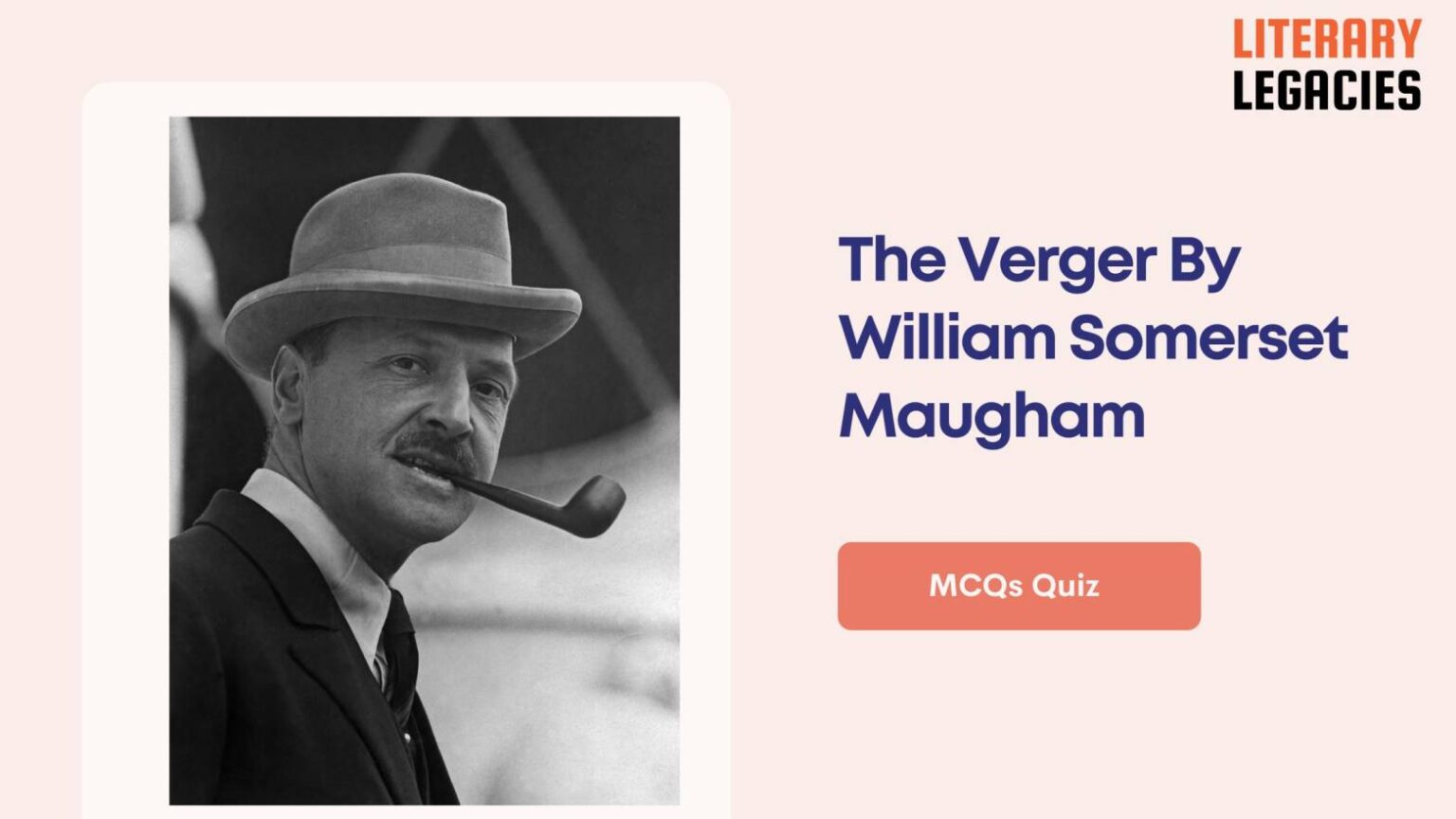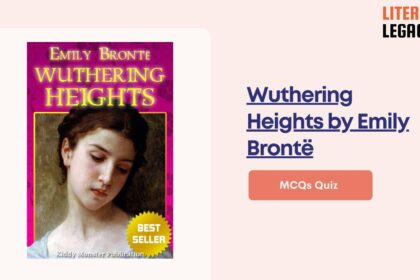1. What was Albert Edward Foreman’s occupation?
A. Tobacco businessman
B. Priest at Neville Square
C. Verger at St.Peter’s Church
D. Vicar at St.Peter’s Church
Answer: Verger at St.Peter’s Church (C)
Albert Edward Foreman was a verger at St.Peter’s Church in Neville Square.
2. Why did the new vicar want to terminate Foreman’s employment?
A. Foreman was very old
B. Foreman was not performing his duties well
C. Foreman was illiterate
D. Foreman was not a regular church attendee
Answer: Foreman was illiterate (C)
The vicar wanted to terminate Foreman’s employment because he was illiterate.
3. How long did the vicar give Foreman to learn how to read and write?
A. Six months
B. One month
C. One year
D. Three months
Answer: Three months (D)
The vicar gave Foreman three months to learn how to read and write.
4. What was Foreman’s reason for declining the vicar’s offer?
A. He was too old to learn
B. He was not interested in learning
C. He was too young to learn
D. He was busy with other tasks
Answer: He was too young to learn (C)
Foreman declined the vicar’s offer because he claimed he was too young to learn.
5. What did Foreman do after losing his job as a verger?
A. He traveled abroad
B. He started a tobacco business
C. He started a new job as a vicar
D. He stayed at home and did nothing
Answer: He started a tobacco business (B)
Foreman started a tobacco business after losing his job as a verger.
6. Why did Foreman want to smoke a cigarette?
A. He was bored and had nothing to do
B. He was upset and worn out
C. He was happy and celebrating
D. He was hungry and wanted a snack
Answer: He was upset and worn out (B)
Foreman wanted to smoke a cigarette because he was upset and worn out.
7. What made Foreman think of starting a tobacco business?
A. He saw a tobacco store on the road
B. He couldn’t find a tobacco store on the road
C. He met someone who owned a tobacco business
D. He read about tobacco business in a book
Answer: He couldn’t find a tobacco store on the road (B)
Foreman thought of starting a tobacco business because he couldn’t find a tobacco store on the road.
8. How many branches of his tobacco business did Foreman open in ten years?
A. Ten
B. Twenty
C. Five
D. Fifteen
Answer: Ten (A)
Foreman opened ten branches of his tobacco business in ten years.
9. What was the outcome of Foreman’s tobacco business?
A. It was successful and turned a profit
B. It failed
C. It was closed down by the government
D. It was neither successful nor unsuccessful
Answer: It was successful and turned a profit (A)
Foreman’s tobacco business was successful and turned a profit.
10. How much money has Albert accumulated in his bank account?
A. £20,000
B. £30,000
C. £40,000
D. £10,000
Answer: £30,000 (B)
Albert’s bank account has reached a significant amount.
11. What advice does the bank manager give to Albert?
A. To close his account
B. To invest in certain secure assets
C. To keep his money in the bank
D. To withdraw all his money
Answer: To invest in certain secure assets (B)
The bank manager wants to help Albert secure his money.
12. Why does Albert prefer to keep his money in the bank?
A. He doesn’t know how to invest
B. He doesn’t trust the bank manager
C. He doesn’t want to take any chances
D. He wants to earn more interest
Answer: He doesn’t want to take any chances (C)
Albert is cautious with his money.
13. What does the bank manager claim to do for Albert?
A. Write for him
B. Care for his money
C. Read the papers for him
D. Take care of his investments
Answer: Care for his money (B)
The bank manager is willing to help Albert.
14. What ability has Albert gained since starting the company?
A. The ability to write
B. The ability to manage
C. The ability to read
D. The ability to sign
Answer: The ability to sign (D)
Albert has made progress in his business.
15. What does Albert realize about himself after talking to the manager?
A. He is able to read and write
B. He is a successful businessman
C. He is a good investor
D. He lacks literacy
Answer: He lacks literacy (D)
Albert has a surprising revelation about himself.
16. What does the manager claim to do for Albert’s investments?
A. Write and sign the papers
B. Write the papers and then read
C. Read and sign the papers
D. Read the papers and then sign
Answer: Read the papers and then sign (D)
The manager is willing to help Albert with his investments.
17. What might Albert have accomplished if he had been educated and learned to read?
A. Become a bank manager
B. Become a successful businessman
C. Become a verger at St.Peter’s Neville Square
D. Become a wealthy investor
Answer: Become a verger at St.Peter’s Neville Square (C)
Albert reflects on what could have been.
18. What tone does Albert respond with when discussing his lack of education?
A. Light
B. Sad
C. Serious
D. Angry
Answer: Light (A)
Albert has a surprising reaction to his situation.
19. What does Albert’s story highlight about his accomplishments?
A. The power of literacy
B. The importance of education
C. The role of luck in business
D. The ability to succeed despite limitations
Answer: The ability to succeed despite limitations (D)
Albert’s story is a testament to his perseverance.
20. What message does the story convey about traditional education?
A. It is the only way to gain practical skills.
B. It is essential for achieving success.
C. It is not a determining factor in one’s ability to succeed.
D. It only benefits those who are already wealthy.
Answer: It is not a determining factor in one’s ability to succeed. (C)
The story highlights Albert’s success despite his lack of education, emphasizing the importance of innovative thought and practical skills.
21. What theme is explored through the character of Foreman?
A. The value of traditional education.
B. The arbitrary nature of societal norms.
C. The power of wealth and influence.
D. The importance of social status.
Answer: The arbitrary nature of societal norms. (B)
Foreman’s character is used to comment on the arbitrary nature of societal norms and expectations.
22. What does Albert’s story suggest about the relationship between education and success?
A. Education is the only factor in determining success.
B. They are directly proportional, with more education leading to more success.
C. They are unrelated, and success can be achieved through other means.
D. They are indirectly proportional, with less education leading to more success.
Answer: They are unrelated, and success can be achieved through other means. (C)
Albert’s success despite his lack of education highlights that success can be achieved through innovative thought and practical skills.
23. What is the tone of the story?
A. Optimistic and thought-provoking.
B. Humorous and lighthearted.
C. Somber and pessimistic.
D. Critical and ironic.
Answer: Optimistic and thought-provoking. (A)
The story is concise and thought-provoking, making it an excellent commentary on societal expectations and success.
24. What is the author’s purpose in writing this story?
A. To promote the idea that wealth is the key to happiness.
B. To criticize the traditional education system.
C. To explore the themes of success and societal expectations.
D. To emphasize the importance of following societal norms.
Answer: To explore the themes of success and societal expectations. (C)
The author uses the story to explore themes such as societal expectations, success, and the value of traditional education.



